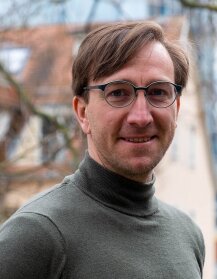
Many postdocs will find the first two years after the doctorate to be a phase of orientation with many questions arising: How will their chances to work permanently in science turn out? Is it possible to find long-term funding to help along the way toward a professorship? Can this early postdoc phase serve the purpose to complete projects, implement ideas and expand the scientific skills from the doctorate - so that the researcher would then successfully switch to a professional field outside the university? Or will a scientific career remain a goal and mindset at all times, to be consistently pursued?
-
Typical career steps in the early postdoc phase
What are your plans and goals for your first year or two as a postdoc? Here are a few typical buzzwords:
- Publications: Research and publication of smaller "fringe topics" from the doctoral project, book publication of the doctoral thesis (in the humanities and social sciences).
- Mobility: the early postdoc years are considered an ideal phase to spend time abroad or relocate. Why not spend a few months or even years researching and living abroad? Advice on funding opportunities can be found here.
- Orientation and decision: After your doctorate, it will be your turn to decide whether you want to stay in academia permanently or explore other career options. Find out about the opportunities in your discipline, deal with the risks and get feedback on your potential!
- Second research area and habilitation topic: If you want to stay in academia, now is the time to look for a second research area. This won't happen overnight, but you shouldn't spend too long circling around your doctoral topic - even if it's your "home turf." Try to familiarize yourself with new topics and, if possible, publish on them already. If a habilitation as a monograph is common in your discipline, you should plan and start it.
- Your own third-party funding: As a postdoc, you have your first chance to acquire your own third-party funding project. The Walter Benjamin Programme of the DFGExternal link is exactly made for the early postdoc years, so that you can implement your own research ideas. But smaller third-party funding successes with only travel and material costs will also help you and are good practice in proposal writing.
-
Postdoc career review talk with supervisors
Every postdoc employed on budget funding at Friedrich Schiller University is required to participate in a mandatory career review (career planning conversation) with their supervisor and another university staff member after the first two years of employment (vgl. guideline "Richtlinie für die Ausgestaltung von befristeten Beschäftigungsverhältnissen 2015"pdf, 474 kb · de). For this career review talk, the university's staff department and Graduate Academy have developped a guidelinepdf, 175 kb to help you find your way through the relevant topics.
The career review talk is meant to support the career planning of the postdoc who is still in fixed-term employment. As their academic future is open, postdoctoral researchers need the experienced academic partners in the conversation to provide them with the best possible orientation about their career options and an agreement on the support they can get to realise those options. Another valuable element of the career review talk should be to look at previous achievements and to agree on realistic and sensible goals for the nearer future.
At the end of the conversation, there should be an agreement made on the qualification goals and on the running time of a follow-up contract appropriate to reach those goals, as has been specified in the German academic employment law ("Wissenschaftszeitvertragsgesetz"). All contents of the conversation remain confidential, however, the final agreement will be passed on to the university staff department, as it is the basis for the next employment contract of the postdoctoral researcher.
The guideline for the postdoc career planning conversationpdf, 175 kb is intended to help both postdocs and their supervisors to raise the topic of career perspectives in mutual responsibility.
Additionally, it may be helpful to seek counselling with an outside expert to help get a clear perspective on your professional options and goals, and to plan further steps of your career. For this, the Graduate Academy offers you Career Counselling for Postdocs.
-
Career counselling for postdocs
Are you not sure whether to embark on a career in academia? You want to talk about requirements and possible next steps in your career?
Or would you rather move on to the job market outside of academia and get advice on opportunities and a good application strategy?
The Graduate Academy's Postdoc Career Counseling Service can help you with these questions. Email or call to make an appointment!

Johannisstraße 13
07743 Jena Google Maps site planExternal link
